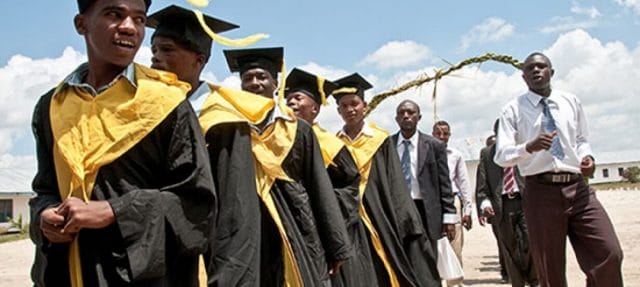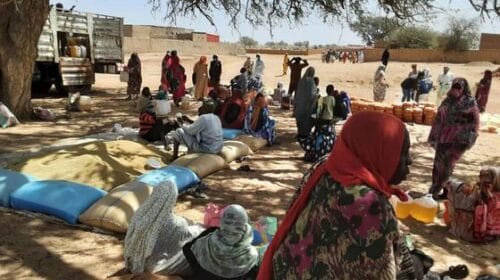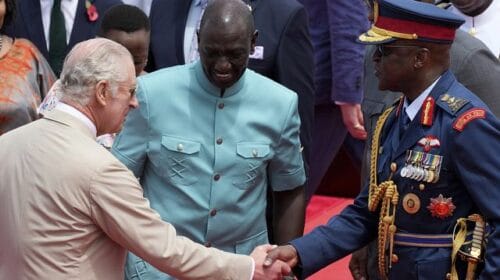Critical Thinking and Superstitions Among Youths in Africa
By Leo Igwe
The topic of critical thinking and superstitions among young Africans can be explained using three images. First is the photo of young Nigerians in police custody holding female pants. Did they steal these pants to wear them? Not at all. They thieved the underwear hoping to use them for a ritual sacrifice that could make them rich. Other young Nigerians have been caught with human heads and private organs. Many have been arrested, prosecuted, or are at large for killing and harvesting human body parts for the same purpose.
Another image is that of young Nigerians surrounding an alleged witch in Lagos. The woman was said to be a witch, who was flying to a meeting but eventually crash-landed at Oworonshoki, a suburb of Lagos. The crash landing of alleged witches often happens in crowded shanty areas and bus stops; in places where it is difficult to ascertain what happened. In many cases, young people constitute the mob that often attack or inflict jungle justice on the so-called witches. Many Nigerian youths believe without an iota of doubt that human beings turn -and can turn into birds, snakes, dogs, cats, and insects.
Another image is that of young Muslims who reportedly dragged an alleged blasphemer, also a young person, and burnt him in Bauchi in northern Nigeria. These young Muslims, who were over 50 in number, stood by and watched as this alleged blasphemer burnt to ashes. Nobody tried to rescue or save the life of the alleged blasphemer. Some years ago, some Muslim students lynched their class teacher for allegedly desecrating the Quran in Gombe state. Young Muslims have become the face of beheadings, attacks, murders, and other atrocities linked to allegations of blasphemy, insulting Islam, and desecration of the Quran.
Now, these images illustrate the tragic hold of unreason and extreme religious beliefs on the minds of Nigerian youths. They eloquently testify to the destructive impact of dogmas on their lives. Incidentally, some facilities in Nigerian society frustrate the exercise of critical thinking and predispose young people to irrationally and superstitiously believe.
The first facility is the family. Families are the bedrock of social life and nurturing. Unfortunately, many young people are born into families where they dare not interrogate ideas especially religious and cultural beliefs and practices. Youths grow up in a religious environment where they are not encouraged to question claims made by their parents, elders, or clerics. They are brought up mainly by devout and dogmatic relatives. These family members identify as Muslims or Christians or traditionalists. They regard unquestioning disposition towards Islamic, Christian, and traditional beliefs as a family way of life. Young Nigerians live in communities where the art of questioning or doubting claims is regarded as deviant or a sign of disrespect for parents and elders.
Schools are also part of the drivers and fuelers of youth superstitions. In Nigeria, most schools are no longer dispensers of knowledge and enlightenment. Schools are institutions for the indoctrination and brainwashing of children and youths. Schools are mainly faith, not reason-based. They discourage critical examination of beliefs and traditions. School authorities block any activity, or program that could offend or be seen to be offending the religious and cultural sensibilities of the people. Thus, schools produce young people who are afraid to think or entertain independent views; individuals that cannot openly challenge ideas or critically question beliefs. Schools graduate students inclined to blind faith; students who perpetrate acts of fanatical and superstitious violence with impunity.
Religious bodies are also among the enablers of superstition and dogmatism among the youths in Nigeria. Each religion claims to be true, and rallies against anyone that questions its doctrines. Religions have well-oiled machinery and personnel devoted to indoctrinating young people and holding them mentally hostage. Religious bodies incentivize blind faith and reward unquestioning obedience. Incidentally, many youths have questions, but they cannot ask them. They find many teachings absurd, objectionable, and untenable. But they cannot say so. Many youths have doubts, but they cannot publicly express their rebellious thoughts and sentiments due to fear of sanctions and penalties, including execution and incarceration by religious bodies and their theocratic allies.
Superstitious fears and acts of violence will continue to ravage the African society and destroy its youths until critical thinking becomes a permanent feature of the everyday family, school, and religious life.




